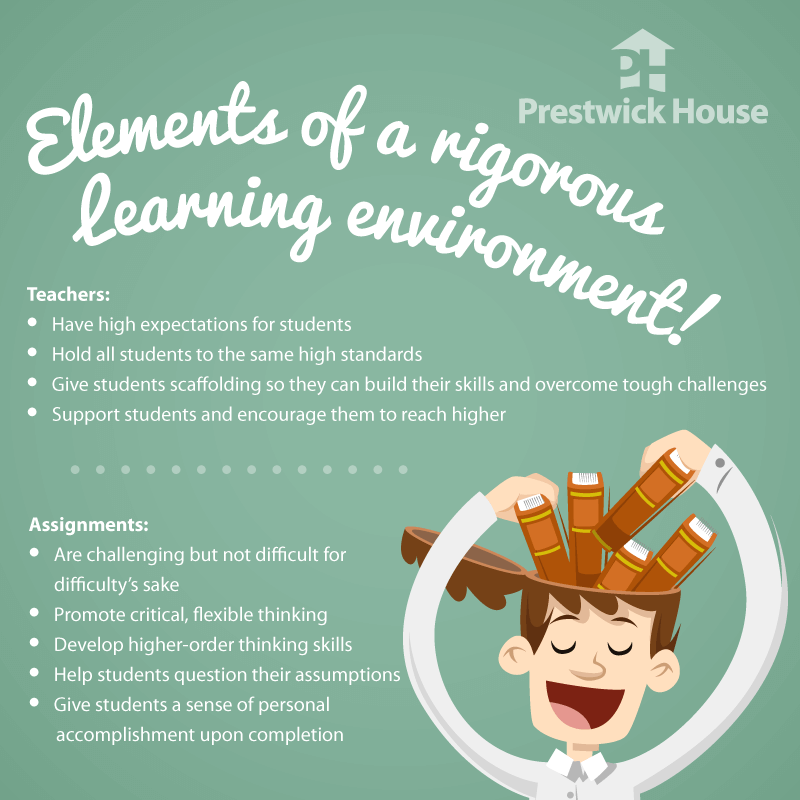We've discussed rigor in this space before, but it's a topic that deserves a deeper examination.
Essentially, rigor is about making sure that every one of your students is held to the same high standard no matter what. It's about helping them reach those expectations no matter their starting ability level. It's about teaching them not just how to solve problems specific to English/Language Arts, but how to think critically and creatively to solve problems for the rest of their lives.
Let's go into more detail.
Rigor isn't just about difficulty
A common misconception about rigor in the classroom is that it's a synonym for difficulty. Difficult exercises are part of rigor, to be sure, but that's not the whole story.
In the context of rigor, every assignment should do something to help the students build a skill or practice critical thinking. The level of difficulty the assignment starts at matters too; many students need to be eased into learning new skills, and that's where scaffolding comes in.
Some students might have the skills to complete the assignment as soon as they start. Others are going to need practice and support to reach that level. Ultimately, your objective is to make sure that every student reaches the level of performance you've set. Which brings me to my next point:
Rigor's about high expectations and accountability
In rigorous learning environments, teachers expect high performance from all of their students — and they make these expectations explicit so that students know exactly what is expected of them.
Every student, regardless of initial ability level, is expected to reach the same high threshold of performance. Some particularly industrious students may reach this threshold sooner than others — or surpass it — and that's okay!
Others may think they can't reach the threshold at all. These students need to know that giving up is not an option. You'll be there to support them all the way, but they're going to have to put in the effort to achieve the high standards you've set.
Rigor's about teaching thinking skills — not content
Rigorous learning environments are intended to develop people who can think critically and creatively in order to solve problems.
Asking students to fill in blanks on worksheets or tell you which character said something to which other character requires only factual recall. And while factual recall is important (for example, students have to be able to comprehend passages before they can analyze them), it shouldn't be the sole purpose of the exercise. Have your students do something interesting with those facts!
Rigorous assignments promote higher-order thinking skills — like the ability to analyze information, or synthesize information from two or more sources to produce something novel, or evaluate how well an author uses literary technique to create meaning.
So that's what rigor's all about. What sorts of rigorous assignments are you giving your students? Talk to us in the comments.
